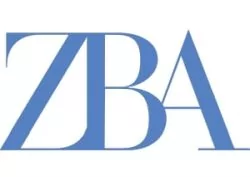The seven-judge bench of the Supreme Court in N N Global1 had an opportunity to conclusively decide on the admissibility of the unstamped (or insufficiently stamped) documents. But unfortunately the Court looked at the issue with a narrow lens and restricted itself to the referral under the Arbitration and Conciliation Act, 1996. This was not the first time that the Supreme Court was called on to adjudicate on this issue, and in fact, the time spent by the Court on this is concerning.
The time is definitely a major factor in insolvency proceedings. And despite the insolvency proceedings under the Insolvency and Bankruptcy Code, 2016, as amended (“IBC”) being summary in nature, the tribunals spend (and are routinely forced to spend) inordinate time to dispose of matters. One such issue that is clogging the tribunals is the unstamped documents. We briefly discuss below on this issue.
Clarity on Section 7 Application
Whether a section 7 application can be admitted relying on unstamped (or insufficiently stamped) documents? In Prafull Nanji2 the debt and default were not disputed but the corporate debtor's only defence was unstamped (or insufficiently stamped) documents. The NCLAT ruled here that the insufficiency of stamp duty on a document was a technical deficiency and a curable defect – a section 7 application cannot be rejected on this ground alone. But the NCLAT supported its ruling by relying on other documents (that are either properly stamped or does not require stamping) to establish debt and default. Essentially, a section 7 application must be allowed if there are sufficient documents to establish debt and default – the tribunals are not expected to go beyond this requirement.
The NCLAT's ruling appears to be well-founded and in line with the purpose of the IBC. As of now, NCLTs are not entertaining any argument based on insufficient stamp duty in a section 7 application.
What about guarantee?
Whether the Prafull Nanji principles apply for the personal guarantee insolvency (“PG Insolvency”) as well? This area needs to be addressed for several reasons. First, unlike the corporate insolvency process, the regulations for PG Insolvency are not laid out in detail. And this has created many loopholes in the PG insolvency process. Secondly, a deed of guarantee or guarantee agreement is the primary document that creates guarantee obligation of a personal guarantor. So if the guarantee agreement is unstamped then whether the “debt” can be established by relying on other documents such as acknowledgment by the personal guarantor in letters? This issue is significant for states with high stamp duty such as Maharashtra.
As on date, the NCLTs have agreed that an unstamped (or insufficient) guarantee agreement can be relied on for the PG Insolvency though the reasonings differ.
For example, the NCLT Mumbai (Bench-2) in Mamata Apparao3 relied on N N Global to conclude that an unstamped document is not void or void ab initio and that the insufficiency of the stamp duty is a curable defect. The bench also relied on section 30 of Maharashtra Stamp Act, 1958 under which the onus of paying the stamp duty is on the PG. And thus the bench concluded that the PG cannot take benefit of its own wrong. This position of the NCLT is interesting (and also vulnerable in a challenge) because the Maharashtra Stamp Act (as well as the Indian Stamp Act) does not specify that an unstamped document is admissible against the person who was responsible to pay the stamp duty but chose not to pay. Under the Maharashtra Stamp Act (as well as the Indian Stamp Act), an unstamped document is inadmissible in evidence for all purposes and against all parties.
The NCLT Mumbai (Bench-1) in Manohar Gopal4 agreed that an unstamped guarantee agreement can be relied on to initiate insolvency proceedings. In Manohar Gopal, the NCLT again ruled that a personal guarantor – who is liable to pay the stamp duty on the guarantee deed – cannot take benefit of his own wrong. The NCLT's position here is that the insolvency proceedings are not the “enforcement of a guarantee” but are meant to resolve the debtor. It is hard to comprehend how this position (and in absence of any law) justifies reliance on an unstamped agreement. In any event, as on date, NCLTs have permitted insolvency of personal guarantors despite unstamped (or insufficient) guarantee agreement.
Need for the Clarification
The constitution bench in N N Global 2 ruled that if the original of an instrument is produced and if “unstamped”, the court is duty bound to impound such instrument to give effect to the Stamp Act5. But the seven-judge bench in N N Global ruled that if the unstamped agreement is impounded by a court at the stage of appointment of the arbitrator, then the entire arbitration will be delayed, which will defeat the purpose of the Arbitration Act. The interpretation of the seven-judge bench is problematic on several accounts but mostly that it gives no reason for a court to not impound an unstamped instrument – there is no exception under the Stamp Act.
Stamp duty is in the nature of tax and if that prevents a party (and in the IBC case, mostly the banks) from initiating insolvency against the debtors then that violates the contractual freedom of parties. The Stamp Act is archaic and must be amended by the legislature to bring it in line with the modern laws such as the IBC. Stamp duty on real estate transactions is understandable – as is the global practice – but the stamp duty on every instrument (and for all transactions) is restrictive. But the intervention should be by the legislature and not the courts.
Footnotes
1. 2023 7 SCC 1
2. Praful Nanji Satra V/s Vistra ITCL (India) Limited and Others (2022) SCC OnLine NCLAT 336
3. SBI v Mamata Apparao (CP(IB) No. 101/MB/2021
4. IDBI v. Manohar Gopal Bidaye (C P No. 126 of 2022)
5. See, para 114, N N Global 2
The above is a generic analysis and should not be regarded as a substitute for specific advice based on the facts of a client's objectives and specific commercial agreements reached. Please do reach out to us at mail@zba.co.in for any queries.



